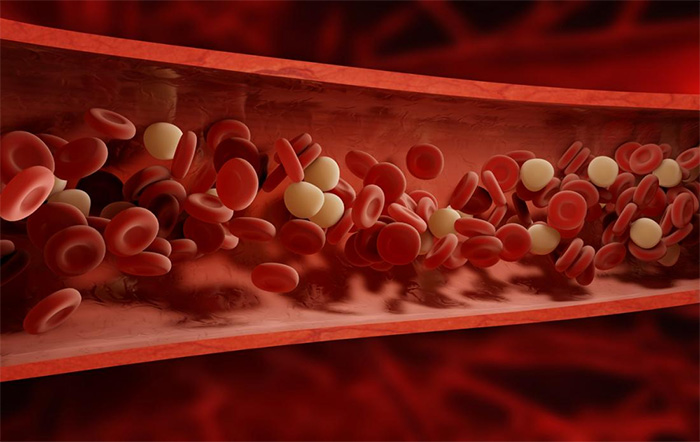To another planet, human blood will 'discolor'?
A major obstacle to interplanetary exploration and even settlement has just been discovered by Canadian scientists.

Human blood has not evolved suitable for the cosmic environment.
The work, just published in the journal Nature Medicine, shows that human blood has not evolved well for the space environment, specifically the phenomenon of red blood cells "self-destructing" rapidly.
Professor-Dr. Guy Trudel from the Ottawa Hospital and the University of Ottawa (Canada) told Sci-News: "Space anemia has been reported repeatedly by astronauts when they returned to Earth since the early days of this year. first space mission, but we don't know why".
In the new study, they compared what happens in the bodies of astronauts who worked at the International Space Station for 6 months with people who remained continuously on Earth and made a shocking discovery: The arrival and stay at the space station increased the rate of self-destruction of red blood cells by up to 54%.
The destruction of red blood cells is a normal mechanism of the body, but if it happens abnormally fast, it can certainly cause severe anemia, threatening health and even life.
Tested at the time of returning to Earth, the rate of destruction of red blood cells was still 30% higher than before, and it was not until 4 months later that their bodies returned to normal.
According to Science Alert, this will cause space researchers to recalculate for the interplanetary travel, space base building . that they have contemplated in the past. Because obviously a long trip can kill the astronauts. The mechanism of this rapid destruction of red blood cells remains unclear.
However, in addition to providing a basis for recalculating the health care of astronauts (appropriate diet, health monitoring, limiting the impact of cosmic factors), this new discovery could provide new avenues for intervention for common anemic patients on Earth.
- Successfully developing blood from human skin, opening a new era for medicine
- Can treat Alzheimer's with ... human blood
- Human blood comes from aliens
- Why is our blood red, but not green?
- Blood dragon tree - the most mysterious tree on the planet
- Video: Sharks' sudden reaction when lured with human blood
- Characteristics show that humans are the most 'unique' creatures on the planet
- Discover a human planet that can live
- Artificial blood will be tested in humans in 2016
- Artificial blood - human hope
- Using artificial blood on human body
- Making blood from human skin
 Van Allen's belt and evidence that the Apollo 11 mission to the Moon was myth
Van Allen's belt and evidence that the Apollo 11 mission to the Moon was myth The levels of civilization in the universe (Kardashev scale)
The levels of civilization in the universe (Kardashev scale) Today Mars, the sun and the Earth are aligned
Today Mars, the sun and the Earth are aligned The Amazon owner announced a secret plan to build a space base for thousands of people
The Amazon owner announced a secret plan to build a space base for thousands of people